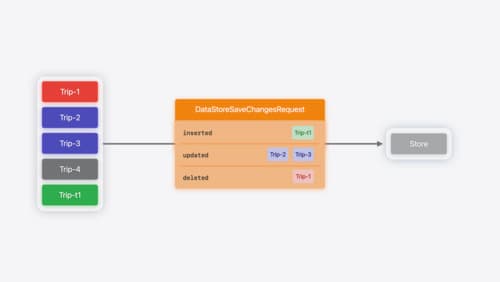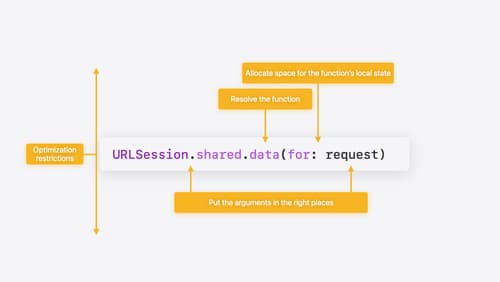how can I optimize core data with lists loading?
Asked on 2024-08-17
1 search
To optimize Core Data with lists loading, you can leverage the new features introduced in SwiftData, as discussed in the WWDC 2024 sessions. Here are some key strategies:
-
Indexing: Use the index macro to specify keypaths for properties that are frequently used in sorting and filtering. This makes queries faster and more efficient. For example, in the Trips app, indexing the name, start, and end date properties can significantly speed up filtering and sorting operations. You can even create a compound index for these properties to handle large datasets more efficiently. What’s new in SwiftData
-
Custom Data Stores: SwiftData allows you to create custom data stores, which can be tailored to your specific needs. This flexibility means you can choose the most efficient storage backend for your app, whether it's SQLite, a remote web service, or a custom format like JSON. This can help optimize data loading and persistence. Create a custom data store with SwiftData
-
Efficient Queries: Use the predicate macro to build efficient queries that drive your SwiftUI views. This allows for sorting and filtering directly in the data queries, reducing the need for large in-memory datasets. What’s new in SwiftData
By implementing these strategies, you can enhance the performance of your app's data handling, especially when dealing with lists and large datasets.

Create a custom data store with SwiftData
Combine the power of SwiftData’s expressive, declarative modeling API with your own persistence backend. Learn how to build a custom data store and explore how to progressively add persistence features in your app. To get the most out of this session, watch “Meet SwiftData” and “Model your schema with SwiftData” from WWDC23.

Platforms State of the Union
Discover the newest advancements on Apple platforms.

Explore Swift performance
Discover how Swift balances abstraction and performance. Learn what elements of performance to consider and how the Swift optimizer affects them. Explore the different features of Swift and how they’re implemented to further understand the tradeoffs available that can impact performance.
